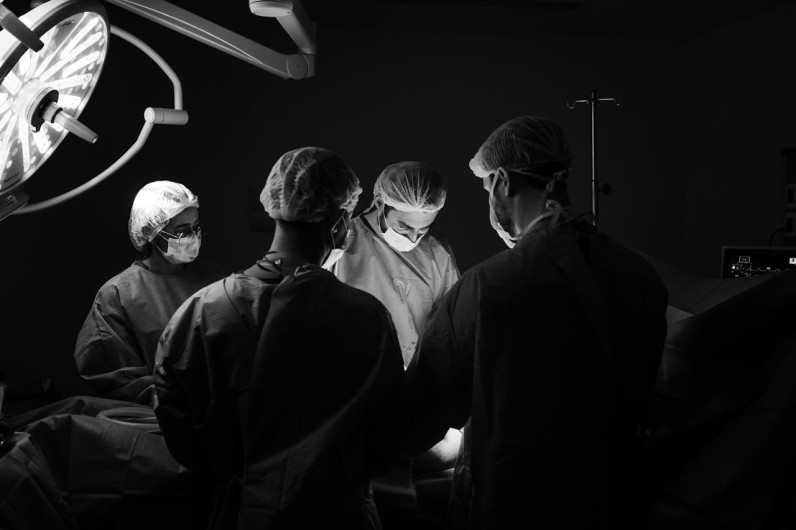
Current cardiovascular treatments often focus on reactive measures, such as bypass surgeries or stent placements, to address advanced stages of heart disease. While these interventions are vital, they come with inherent risks, high costs, and lengthy recovery times. However, a shift towards preventive care has the potential to revolutionize cardiovascular treatment, offering a proactive approach to address underlying issues before they escalate.
Meridian Cardiovascular Systems (MCS) is a startup specializing in catheter-based medical devices. It focuses on developing products that offer less traumatic and more cost-effective alternatives to traditional treatments for cardiovascular diseases.
MCS looks to capitalize on significant market opportunities within the medical devices space. The company aims to treat various cardiovascular conditions and potentially expand into other medical applications.
A common feature of all MCS catheters is modified radiofrequency ablation, which is employed to remove plaque from arteries. A second feature is high-frequency ultrasound, integrated into each catheter tip, which provides live images for procedure guidance. This combination enables a safe and effective means of removing arterial plaque.
Starting with bypass surgeries, an invasive and traumatic procedure, MCS expects to provide a better alternative. Approximately 220,000 bypass surgeries are performed annually in the USA, making them one of the most commonly performed major surgical procedures. MCS's solution, ultrasound-guided radiofrequency ablation, reduces the need for bypass surgery and can significantly impact patient outcomes and improve quality of life. It should be noted that bypass surgery involves a 7–10 day hospital stay, about a year for recovery, has a chance for recurrence, and costs upward of $100,000. By comparison, a catheter lab procedure has approximately an eight-hour recovery and typically costs $15,000.
In the case of critical limb ischemia (CLI), a condition characterized by severe pain, slow-healing sores on feet or legs, possible discharge from gangrene, and the looming threat of amputation, MCS offers a better option as well. It is estimated that 25 million individuals worldwide suffer from CLI, and hundreds of thousands of new cases are diagnosed each year. Since plaque deposits cause CLI, the MCS catheter can help by removing the plaque that restricts blood flow to the limbs.
Another cardiovascular procedure for which the novel MCS catheter would be applicable is traditional stent placement. Unlike stents, which can damage arterial walls, leading to restenosis, MCS's approach gently removes plaque, causes no damage to the arterial wall, and leaves no hardware behind. "With several million stents implanted annually worldwide and more than 1 million in the United States, there exists a large potential market for our technology," states CEO Andy Hadjicostis.
Shifting the focus, prevention is crucial in minimizing the need for future bypass surgeries, amputations, or stent insertions. Plaque buildup, starting as early as the teen years, in some cases, progresses over time. By age 50, most of the population has some plaque deposits, even though buildup can vary significantly among individuals. Currently, techniques like calcium scoring or CT coronary angiograms can assess plaque buildup non-invasively. If significant buildup is detected, prophylactic intervention may be a good option. Similar to a colonoscopy for early detection of colon cancer, the MCS preventive approach can be used to identify and remove plaque before symptoms develop.
This preventive strategy offers a great opportunity. "By targeting plaque early, we can potentially avert the development of serious heart disease and reduce the need for more traumatic invasive procedures at a later time," says Hadjicostis. Investing in preventive healthcare holds major promise for improving cardiovascular practices and reducing healthcare costs. Preventive cardiovascular care's potential market size and impact are considerable.
Looking further ahead, future trends and demographic shifts point to a growing need for cardiac care. The aging demographic is particularly noteworthy, with longevity emerging as a central focus for many individuals. As lifespans lengthen, there's an anticipated increasing need for preventive cardiovascular treatments.
Also, global trends, such as the adoption of Western diets and lifestyles, impact health worldwide. Diseases like diabetes and heart disease are on the rise, particularly in developing countries. In regions like the Middle East, for example, there is a marked increase in heart disease, creating a demand for improved treatments.
A real opportunity for MCS lies in addressing these and other rising health concerns in the USA and worldwide. To learn more about MCS, visit meridiancsi.com.







Join the Conversation